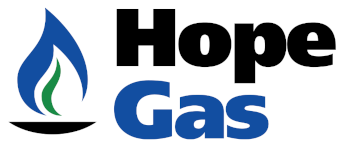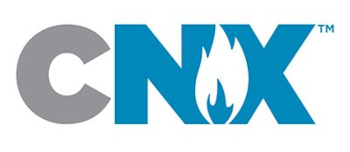Greg Kozera
Forty-nine years ago, this week, on October 19, 1973 the Organization of Arab Petroleum Exporting Countries (OAPEC) imposed an oil embargo against the United States. It was in retaliation for the U.S. decision to send military aid to Israel in the Yom Kippur War between the Arab nations and Israel. The USA once the world’s largest oil producer during WWII had become increasing dependent on imported oil and was importing 30% of its needs. U.S. oil production peaked in the early 1970s.
The immediate result of the embargo was increased oil prices from $3 to $11 per barrel and ultimately $19 per barrel. Gasoline was suddenly in short supply. Prices soared to over $0.50 per gallon. A big deal then. People waited in long lines to buy gasoline. Where I lived in Pittsburgh the last number on your license plate, even or odd determined which days you could buy gasoline. We thought paying $0.50 a gallon was terrible. Worse for me was not being able to buy gasoline and travel when I wanted.
The Arab Oil Embargo dramatically changed my life and career plans. I was an Agricultural Engineering student at WVU. The summer of my junior year I worked as an intern for the US Soil Conservation Service. My career plan was to work as an engineer for the Soil Conservation Service in West Virginia after graduation. The spike in energy prices because of the Arab Oil Embargo caused a recession. The recession led to a hiring freeze by the federal government. I had to find an alternative career plan.
A company named Halliburton was interviewing for engineers on campus at WVU. They normally hired petroleum engineers but were so desperate it didn’t matter what kind of engineer you were. An engineering degree and willingness to work long hours was all they required. They hired me. My first assignment was Albion, Michigan. The hours were long but I didn’t have anything else to do. My training required me to learn to drive a tractor trailer and work on the cement and frac crews in the field at well sites. It was the beginning of a 40+ year career that was fun, hard and rewarding.
I believe God works in ways we don’t always understand. I met my wife, Lynnda in Michigan. What a blessing! When I moved to Michigan, all my worldly possessions fit in the back of a Plymouth Duster. Seven years later I left Michigan in a tractor-trailer moving van with a wife and three kids. The Arab Oil Embargo gave me a family and a career. I retired from the industry in 2016 and found an even more rewarding career working with Shale Crescent USA to bring jobs back to this region. The Arab Oil Embargo changed my life for the better. The USA was not so lucky.
An end to the Arab Oil Embargo was negotiated in 1974. The USA became aware it was vulnerable to disruptions in oil supply it had no control of. This was also the beginning of the Rust Belt in our region. OPEC had control of energy prices. The OPEC Oil Ministers met and set production levels for each country. Oil production levels determine world oil prices and what we pay at the pump for gasoline. Our region lost its energy advantage. Labor here was higher than most places. Companies left the Ohio Valley and other parts of our region for the U.S. Gulf Coast and Asia where labor was cheaper.
U.S. oil and gas production and reserves continued to decline for over 30 years. We imported more oil for transportation fuel and petrochemical feedstocks. We had an energy crisis in the 1990s and early 2000s. The threat of any Middle East war increased gasoline prices almost overnight because so much of the U.S. and world’s oil came from the Middle East.
The advent of modern horizontal drilling started the U.S. Shale Revolution. Wells can now be drilled thousands of feet horizontally and stay in the productive part of the reservoir. The Marcellus and Utica are two of only three mega giant natural gas fields in the world. The other is in the Middle East. Horizontal drilling allowed the development of large oil fields in West Texas and the Dakotas. The USA has regained its position as the leading oil producer and leading natural gas producer in the world. If Shale Crescent USA was a country, it would be the #3 natural gas producer in the world behind the rest of the USA and Russia. Our region produces almost twice as much natural gas as the entire nation of China. We don’t need OPEC oil. The USA can produce enough oil and natural gas to lower gasoline prices for every American. Energy prices impact everything we buy. We can stop inflation. The U.S. oil and gas industry suffers from a lack of capital and government restrictions. Why ask Saudi Arabia or another OPEC country to increase its oil production without first asking U.S. oil companies to increase production?
Any U.S. leader who cares about the environment would never consider buying oil from nations with little or no environmental regulations and then have it shipped thousands of miles from the Middle East to the USA on a tanker burning dirty bunker fuel causing SOx, NOx & CO2 emissions
The Arab Oil Embargo of 1973 changed our country and the lives of a lot of people. We were powerless to prevent it at the time. The high oil and natural gas prices we experience today and the inflation they cause can be prevented. Government leaders should be working with the U.S. oil and gas industry to encourage U.S. production increases that will lower prices to consumers and encourage more manufacturing in the USA. High wage jobs will be created and lower global emissions will result as consumers buy less products from places like China.
Greg Kozera, [email protected] is the Director of Marketing and Sales for Shale Crescent USA. www.shalecrescentusa.com (You can follow SCUSA on Facebook) He is a professional engineer with a Masters in Environmental Engineering and over 40 years’ experience in the energy industry. Greg is a leadership expert, high school soccer coach, professional speaker, author of four books and numerous published articles.










